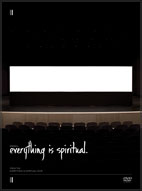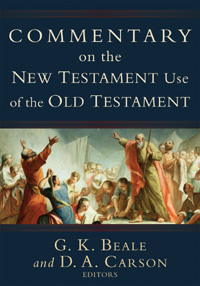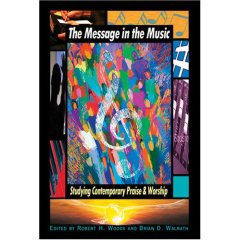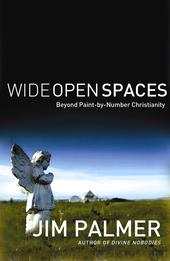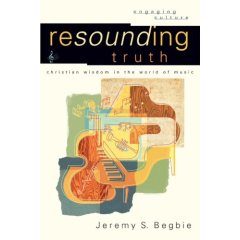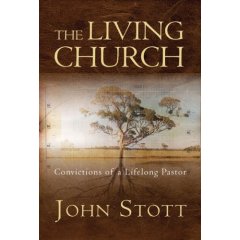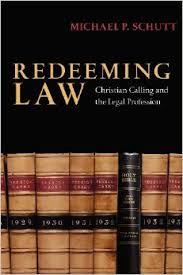WHAT TO THINK ABOUT THE GOLDEN COMPASS: A LONG ANSWER TO A GOOD QUESTION
There has been much discussion about the book trilogy His Dark Material by Philip Pullman and new film based on the first book, The Golden Compass. We have long defended Harry Potter, as you can imagine, and, also as you can imagine, took some serious hits, especially here in the bookshop. Still, there are so many books that argue for reading that kind of fantasy, and the seriously Christian insights in Potter that we’ve boldly placed each volume on our counter as they’ve arrived over the years. Making a statement, inviting conversation, causing trouble, having fun. Harry Potter is not of the devil, and we’ve assured customers who worry that if there was truly an affirmation of the occult, we would not be cavalier about that at all. And so, we’ve promoted Rowling and her Potter series.
But Pullman and his Dark Materials? Well, we’ve stocked his trilogy over the years too—our best friends were reading the first one, The Golden Compass, out loud to their and our family during a vacation get-away when it first came out, and we were struck by the exciting story, provocative message, the truly extraordinary writing, and, yes, the anti-Christian vibe. There is no doubt that they are, as the author has himself said, “anti-Narnian” and that the next two releases became even more troubling as the authors worldview—freedom comes from killing God—-is woven into the stunning stories.
I needn’t argue here for a thoughtfully Christian response, although Jeffrey Overstreet does one of the best jobs here. (His book on film and his collection of movie reviews, by the way, is really worth having; more on that below.) Some young friends have, unwisely, I think, advocated boycotting the whole Golden Compass film business, and we’ve had some conversations over at Facebook. A few customers have asked for resources to figure this one out. To be sure, this isn’t like Potter where the critics are flat-out wrong. Pullman is thoroughly anti-Christian and he is proud of it.
Here are a few bookish ideas–starting very broadly as we unpeel the layers of this kind of onion— that may be helpful as you talk about this with your friends, neighbors and church. Forgive us for offering a very long answer to a very good question. Think of this tutorial perhaps not only as an answer to this quandary, but as a case study.
CULTURAL ENGAGEMENT
First, any conversation around what novels, film or art is appropriate for followers of Jesus, who trying to live Scripturally-shaped lives, might best be framed by a proper perspective generally about culture and the relationship of Christian faith to the world in which we live. This is a constant theme here at Hearts & Minds so I won’t list again the books on a basic Christian worldview or the ways in which Christ’s Kingdom has “this-worldly” implications. My Christmas column from our local newspaper, shown at the BookNotes blog, here, gets at some of that. Another thing to remember is that it may be a bit unclear for folks like me to talk about the Biblical mandate to be engaged in culture. Firstly, that doesn’t mean to be engaged “to” culture—we are not to be wedded to any worldly ideology or established way of doing things. (Thanks to Ken Meyers for the good quip.)
 More germane, though, for our readers, is the insight from Cal Seerveld that “culture is not optional.” That is, we are made by God as cultural beings, and it is an impossibility to act in ways that are not cultural. Our friends at *cino take this is their motto, and it guides them as they do their marvelous lit mag that invites normative reflections on just how to be engaged in culture in redemptive ways. Their current (and quite fabulous) catapult e-zine, in fact, is about the arts, so would be a fabulous part of the background reading around these themes.
 Still, you should be reminded of the great book on common grace by Richard Mouw called—do you know the hymn text?—He Shines in All That’s Fair (Eerdmans; $14.) Does God smile at human culture? Do the good things of human fruitfulness please Him? What about the less than righteous creations and dysfunctional institutions? In a fallen world, how do we appreciate, appropriate, and/or resist the artifacts, cultural habits, and ethos of idolatrous culture around us? Was Francis Schaeffer correct when he noted that even pagan artists and storytellers and professors can be doing the Lord’s work, insofar as they raise the right questions, and expose the emptiness of some bankrupt answers?Â
A favorite author of ours is T.M. Moore, who works with a mentoring program affiliated with Prison Fellowship that nurtures leaders in this way of thinking called The Centurion Program. (He wrote a fine book on the need for a creational theology, and other on popular culture, among others on church renewal and spirituality.) As he guides thoughtful Centurions to take up their calling in this world, with cultural discernment and wisdom for social innovation and reformation, he has drawn on sources historic and ecumenical. I just love his 2007 paperback Culture Matters: A Call for a Consensus on Christian Cultural Engagement (Baker; $16.95.) He has chapters on how others in the past have navigated this terrain—St. Augustine, St. Patrick and the rise of Celtic art, Calvin and his work in starting theological education, Abraham Kuyper whose renown for all things reformational has shaped us, here, and the contemporary Eastern European poet and Nobel Laureate, Czeslaw Milosz. This book is very interesting (including features like an interview with guitarist Phil Keaggy) makes specific suggestions for reaching a consensus about cultural renewal and we think it is an important little book.
Dick Staub did a spectacular book this year, released in hardcover, called The Culturally Savvy Christian that bears a long sub-title: A Manifesto for Deepening Faith and Enriching Popular Culture in an Age of Christianity-Lite (Jossey-Bass; $21.95.) That authors like N.T. Wright insist that it is urgent (“for our times—and for our health”Â) may illustrate its significance. (What other book sports endorsements from Martin Marty and Makoto Fujimura, and the late, great Dwight Ozard?) Whether it is Potter or Pullman or Pirates of the Caribbean en our front-line conversations about movies and books and art will be shaped by our deepest convictions about culture, society, the work of God in the world and the like. I’ve gone through much of this book for a second time and want to shout about how good it is, how well written, and truly insightful. If you know anybody who has thought about this stuff a little bit, but needs more, or anybody who is deep in the trenches, this book could be a Godsend. Spread the word!
Eyes Wide Open: Finding God in Popular Culture William D. Romonowski (Brazos; $19.99) This is still the definitive book on thinking about popular culture from a uniquely Christian worldview; I mention it at this foundational level because it is about so much more than just movies and rock music. Bill’s exploration on what culture is, and a theologically rich take on the task of human flourishing, and engagement with cultural development, is right on, and helpful for anyone, in any endeavor. When the first edition came out, it was truly a pioneering voice, and Bill has worked on this stuff—-reading widely, sp
eaking all over, being involved in music and film projects—for decades, now. If this newly updated edition isn’t on your bookshelf, I would say forthrightly that you are remiss! This really is a great book, thoughtful, involved, deep, and wise, and very useful to loan out to those who haven’t heard of this kind of expression of faith in culture. Plus, he’s an old housemate, and I’m mentioned in it, so for crying out loud, order a couple from us. Please?
ART AND CREATIVTY
Once one has this worldviewish, creation-restored, Kingdom-of-God, socially-reforming, in-but-not-of, missional vision, and has well under the belt some fluency in thinking faithfully about culture and cultural engagement, then, it seems to me, the next layer that we must know well would be some basic stuff about the arts. We should be able to explain to friends and foe why people made in God’s image care about creativity and imagination, and how the aesthetic dimension of life—and, specifically, the arts— is important to shape our thinking about stuff like R-rated movies or anti-Christian children’s novels.
We’ve offered a listing and description of some of our favorite books on the arts at our website bibliography “Books by Vocation.” This is a great, starter list, but there are so very many more. Of course we’ve often said that Rainbows for the Fallen World by Calvin Seerveld (Toronto Tuppence Press; $25) is one of my all-time favorite books, and his sequel to that, Bearing Fresh Olives Leaves (Toronto Tuppence Press; $35) is a must for any serious thinker about the arts. The updated version of his first book on these themes, lectures given in the late 60s and still powerful today, is called A Christian Critique of Art and Literature and it is still in print (Dordt College Press; $15.) Aesthetic life is part of life; God calls us to live embodied in a world of color, sound, taste, sight, culture, art. How can we be a bit intentional about that, reading up and learning together to discern how our discipleship might inform that side of life?Â
More recently, we’ve been very happy to promote Luci Shaw’s new book, a fabulous, gentle, winsome call to a richer aesthetic life entitled Breath for the Bones: Art, Imagination and Spirit: A Reflection on Creativity and Faith (Word; $19.99.)Â What a great gift this would be, a delicious read to encourage us all.
Madeline L’Engle, Luci’s very good friend, is a writer whose memoirs, novels, juvenile fantasy, essays and Biblical reflections have stood the test of time and have been nearly iconic for many of us who hold up a high standard for Christian contributions to the culture. We commend books like the handsome hardcover The Rock That Is Higher (Shaw Publishers; $14.99) which is about how story conveys truth, but her classic in this arena is—-and it may be our biggest seller in this category—- Walking on Water: Reflections on Faith and Art. (There are two editions of this, same book, a hardback published by Shaw and a paperback by North Point Press; both are $13.99.) I don’t know how many spiritually sensitive, young artists I know who have been nurtured by this— it is very useful, thoughtfully provocative, and inspiring.
New this year also is a great introductory essay, a brief and handsome little paperback, was written by Philip Ryken called Art for God’s Sake: A Call to Recover the Arts (P&R; $5.99.) It stands alongside of Francis Schaeffer’s fabulous two-chapter paperback, Art and the Bible (IVP; $8) as a perfect, brief starter for the integration of faith and the arts. The new paperback edition of that, by the way, has a sweet forward by Michael Card, who himself has written a fine book called Scribbles in the Sand: Christ and Creativity (IVP; $13.) Any of these will help shape our view of life, our evaluative grid, and will help inform our perception of how to react to the artifacts—books, TV, media, advertising, schools, politicians—all around us. No point in jumping into specific debates about Pullman, say, without some solid footing to think about the broader questions and concerns.
My sense is that many of us do dive into debates and conversations about watching movies, critiquing cultural phenomenon, boycotting stuff, and we haven’t done the homework, the uniquely Christian thinking, that such evaluations necessitate. So I again implore you to buy books about the formation of a Christian worldview, the nurturing of the Christian mind, and to read some of these books on cultural engagement and, specifically, some stuff on the arts.
No better friend to the Christian artist community in the publishing world can be found than Ned Bustard of Square Halo Books. As I’ve exclaimed often, Ned’s work in stewarding a small, indie publishing venture is inspiring, and he has contributed several essential volumes for anyone interested in the inter-face of faith and art. Ned was recently interviewed by Leanne Martin, who offers a fabulous blog called “Christians in the Arts“ where she has done interviews with a host of remarkable Christian in this field. Check out Ned’s brief story, telling of his work at Square Halo, his reading suggestions, and why all of this matters.
Of course my favorite book of Square Halo’s—soon enough to be touted as one of the premier books to be released in 2007—is the glorious It Was Good: Making Art to the Glory of God (edited by Ned Bustard; Square Halo; $24.) Please go back to my blogged review to see why this book is so useful, and why we need to raise the bar in our conversations about these matters. I am positive that if we raised a generation of younger Christians reading Square Halo books, our response to things like the call to boycott the Golden Compass movie would be much more faithful and wise. I am aware that if you are a parent wondering if you should allow your younger ones to see this, reading Dick Staub and Ned Bustard and Calvin Seerveld won’t immediately solve your problem. Nonetheless, without this kind of broad framework, built brick by brick with these Biblically-informed, culturally-aware, open-minded and spiritually-astute books, we just won’t be the kind of “salt and light and leaven” disciples of Jesus we are called to be.Â
Okay, we are nearly there: soon some suggestions for books about Pullman and The Golden Compass. But first, yet another foundational layer of our proverbial onion: to get at a faithful response to any particular work of literature or film, we should, well, know something about a Christian understanding of film and literature.
A CHRISTIAN VIEW OF LITERATURE
Here are a couple that could be useful. Since you are reading this, I presume you care about books and literature, novels and the printed page. And if you are alive in the 21st century, you simply must care about film.Â
Windows to the World: Literature in Christian Perspective Leland Ryken (Wipf & Stock; $22) How wonderful to see this old chestnut re-issued for a new generation of thoughtful book lovers. Wheaton’s Professor Ryken is one of the foremost evangelical scholars in the humanities in the last 50 years, and this book is a gem.
From Achilles to Christ: Why Christian Should Read the Pagan Classics Louis Markos (IVP; $24) One can learn quite a bit about Homer, Aeschylus, Sophocles, Euripides or Virgil in this, but, for our purposes, it is also a magnificent case study in why people of devout religious faith should engage pagan literature. The author wrote a very, very good b
ook on C.S. Lewis (Lewis Agonistes: How Lewis Can Train Us to Wrestle with the Modern and Postmodern World) and this book is a deeper indication of his learned views. Speaking of Lewis, I suspect you know his great collection, On Stories: And Other Essays on Literature (Harcourt; $13) and his Of Other Words: Essays and Stories (Harcourt; $13) is another important classic in this field.
From Homer to Harry Potter: A Handbook on Myth & Fantasy Matthew Dickerson & David O’Hara (Brazos; $19.99) This is doubtlessly the best book of its kind. Drawing from a viewpoint informed by Lewis & Tolkien, these authors give us here brilliant scholarship on ancient myth and fun stuff on our contemporary epics. Wow. (By the way, if you’ve read Dickerson’s Following Gandolf and recall his section on how it is informed by Beowulf, you’ll get some of the genius of this book.) They look at all kinds of stuff, with excellent sections on Homer, or MacDonald, and, yes, on Mr. Pullman. Wow-o-wow, this is faithful scholarship at its best, offered up in service of the people of God, learning to enjoy and be discerning.
Shouts and Whispers: Twenty-One Writers Speak About Their Writing and Their Faith edited by Jennifer L. Holberg (Eerdmans; $16) Well, before we go off angry about this or that writer, or suspicious of this or that bookstore that sells those authors or books, or before we make over-blown accusations about who is or isn’t faithful in their literature or film, it would do us well to walk along-side of serous writers as they do their work. Ms Holberg, English professor at Calvin College, does just this, inviting us into conversations with authors (some Christians, some not quite, some clearly not) who have much to say about how faith does or doesn’t inform their work. This is a fun book, with interviews with the likes of Anne Lamott or Paul Schrader, and essays from David James Duncan, Ron Hanson, Madeleine L’Engle, Jan Karon and many others.
A CHRISTIAN APPROACH TO FILM STUDIES
Again, we have stocked books of this sort since our earliest days, and it is remarkable how many folks comment that most “Christian bookstores” don’t have a film or media or pop culture section. Call us or write if you want some older classics in this field. The previously mentioned Eyes Wide Open by Romanowski remains a foundational text, and the newer edition includes some new material on recent films. If you don’t have that, start there.
The Gospel According to Hollywood Greg Garrett (WJK; $16.95) We’ve appreciated Garrett’s novels, his early work on The Matrix, and his excellent memoir, Crossing Myself. Here, we have one of the best, serious, fun, and thoughtful recent overviews of the worldviews of Hollywood, deeply discerned, seriously written. A must for movie buffs, and very insightful for the casual fan.
Through a Screen Darkly: Looking Closer at Beauty, Truth and Evil in the Movies Jeffrey Overstreet (Gospel Light; $17.99) This is one of the best books on the topic, and includes some of the best film reviews we know about; Jeff is a professional film reviewer (his own website is www.lookingcloser.org) and his writes provocative pieces for Christianity Today on line. What a fine companion to have, a wise Christian brother, artfully helping us see and understand. (Mr. Overstreet, by the way, has also written a fine fantasy novel that came out this fall, Auralia’s Colors. If you like good writing, a blazing story, amazing characters, and a very well reviewed fantasy experience, check it out. It is the first in a projected trilogy.)
Useless Beauty: Ecclesiastes Through the Lens of Contemporary Film Robert K. Johnston (Baker; $17.99) Those interested in creatively engaging the art of movies, from a Christian view, will know Johnston’s several books. This one is truly amazing, as he explores some of the more edgy recent films (American Beauty, Monster’s Ball, Magnolia, About Schmidt, etc) and relates them to the Biblical book of Ecclesiastes. An exceptional book, thoughtful, deep, careful, serious about film and Word. Wow.
Behind the Screen: Hollywood Insiders on Faith, Film and Culture edited by Spencer Lewerenz & Barbara Nicolosi (Baker; $14.99) Applause, applause, again, to Baker Books for releasing these kinds of contemporary reflections on faith and film. Here, as I said above regarding contemporary authors, you have the chance to peer over the shoulders of followers of Christ who happen to live and work in Hollywood. They speak of their ups and downs, tells stories of their efforts within the movie industry, and offer advice for film buffs and aspiring actors, writers or filmmakers. These media professionals have much to teach us, and it is fascinating to listen in on their sense of God’s presence in city of Angels.
Reframing Theology and Film: New Focus for an Emerging Discipline edited by Robert K. Johnston (Baker; $24.99) More than a dozen scholars who regularly write or teach about the relationship of theology and film are gathered here, each offering a contribution to how the discipline is emerging, and how best to nurture thoughtful Christian engagement in the arena of film studies. This is a mature and top-notch text, important for anyone who intends to follow this dynamic emerging field.
CHRISTIAN ENGAGEMENT WITH THE DARK MATERIALS
At last. We’ve suggested educating yourself, your family, your faith community, your neighbors, in the contours of a Christian world-and-life-perspective; from that foundational imaginative vision we can make meaning out of society, culture, history: we need a Christian basis for thinking about culture. Out of such a view we then can meaningfully and faithful reflect on theories and notions, habits and practices, dispositions and insights about approaching the creative artifacts of the entertainment industry: from TV shows to computer games, from novels to films, CDs to gameshows, we can study and learn and evaluate appropriately the nuances of the story and it’s impact. (This is where so many jump to, pronouncing this or that in black and white tones, boycotting or endorsing, with little background of a Christian foundation or even knowledge about the artifact or issue being debates.) But, with the kinds of resources we’ve suggested, we will be better equipped to offer Godly and wise leadership in conversations and social initiatives around controversial media or entertainment matters. And so, finally, you may want to read up on Pullman’s worldview, and use some books about his powerful and influential writing.
Dark Matter: Shedding Light on Philip Pullman’s Trilogy, His Dark Materials Tony Watkins (IVP; $15) This is perhaps the best, most thoughtful, solid evangelical study of the trilogy, the author’s worldview, and the ways in which we can both appreciate and rightfully be concerned. Highly recommended.
The Devil’s Account: Philip Pullman & Christianity Hugh Rayment-Pickard (DLT; $14) Imported from England, written by an Anglican parish priest with a PhD in philosophy. A very thoughtful and helpful overview. This guy has enthusiastically read all of Pullman’s other works, and is intrigued by his deep commitment to being an atheistic apologist.
Shedding Light on His Dark Materials Kurt Bruner & Jim Ware (SaltRiver; $14.99) This is the third of basic, small hardbacks this good duo has done (they’ve previously collaborated on an introduction to the religious themes in Lord of the Rings, and another on Narnia.) Happily, they appreciate Pullmans good, Oxford-based writing, yet they show the stark difference in worldview between Lewis & Tolkien and Pullman. Still, they reflect o
n some of the deeper themes, offering a reasonable response, and celebrate spiritual themes that appear, perhaps even in spite of Mr. Pullman’s efforts to keep them out. Very nicely done.
Killing the Imposter God: Philip Pullman’s Spiritual Imagination in His Dark Materials Donna Freitas & Jason King (Jossey-Bass; $17.95) This will be a much-talked about book, a creative and thoughtful read, well done in every way. Lauren Winner writes on the back, “Pullman emerges not as the atheist he always said he was, but as an unwitting witness to a divine force that longs to be with creation. It will not only change how you read Pullman—it may change how you think about your own story, too.” Fun, feisty, helpful, and, well, maybe even right.Â
Navigating the Golden Compass: Religion, Science and Daemonology in Philip Pullman’s His Dark Materials Glen Yeffeth (Benbella Books; $17.95) Just so you know that evangelical Christians aren’t the only ones attempting to discern what to make of Mr. Pullman’s deep philosophy, atheism, magic and revulsion against the church. Several thoughtful authors, including well-known novelist Michael Chabon, scientists and philosophers weigh in with their critical evaluations.
***
There are just bunches of resources on the web for film reviews, thoughtful Christian cultural engagement, and places for open discussion. I really want to remind you of two, two staffed by very good friends, reliable and like-minded folks. Any friends of Hearts & Minds or readers of the BookNotes blog should also tune in to these:
Critique magazine, is a journal for Christian discernment, published by Ransom Fellowship. Their website is spectacularly chock-full of movie and music reviews, articles, essays and useful teaching tools to help you grow in Biblical faithfulness. www.ransomfellowship.org
And, for those interested in youth ministry, parents, teachers or those who care about teen culture, our favorite resource is doubtlessly the good folks at the center for parent and youth understanding. In fact, they’ve got a brief review of The Golden Compass in their current issue of their online journal, Engage. They are really good at helping youth think through this in-the-world-but-not-of-it worldview perspective on pop culture.  Â
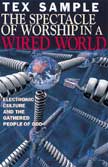 The Spectacle of Worship in a Wired World: Electronic Culture and the Gathered People of God regularly $18 This one covers some fascinating social history, great example of how experience is socially constructed (oh, his stuff on the rise of soul music and early Elvis) and how to be immersed in indigenous cultural practices and maintain a prophetic social critique. This is basic material for his project, told with a fascinating edge, material that it good to know and is sure to shake you up a bit. Highly recommended.
The Spectacle of Worship in a Wired World: Electronic Culture and the Gathered People of God regularly $18 This one covers some fascinating social history, great example of how experience is socially constructed (oh, his stuff on the rise of soul music and early Elvis) and how to be immersed in indigenous cultural practices and maintain a prophetic social critique. This is basic material for his project, told with a fascinating edge, material that it good to know and is sure to shake you up a bit. Highly recommended. 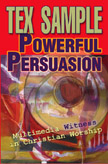 bibliographic references and some practical ways to follow up in your own congregation. Powerful Persuasion includes stuff on lighting, dance, and other special concerns for those wishing to create liturgical experiences that are truly full-bodied, and not just rock music and words on screens.
bibliographic references and some practical ways to follow up in your own congregation. Powerful Persuasion includes stuff on lighting, dance, and other special concerns for those wishing to create liturgical experiences that are truly full-bodied, and not just rock music and words on screens. 
